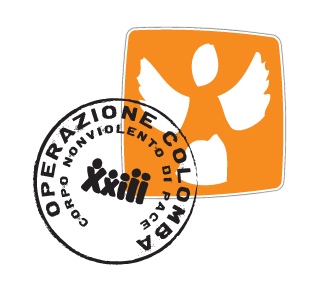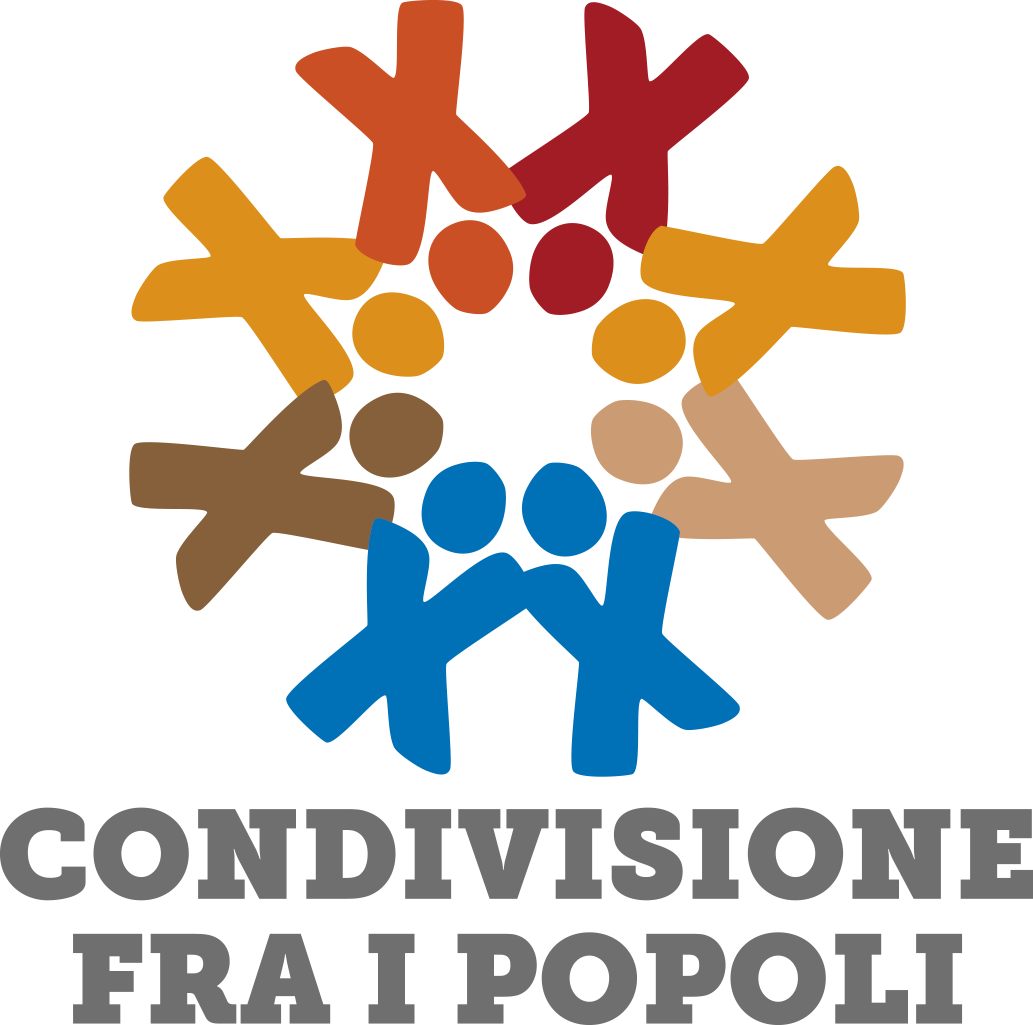In Colombia, in the Abibe mountain range, Urabà region, on 21 February 2005, a joint military and paramilitary operative group put an end to the lives of Luis Eduardo, Bellanira, Deiner, Sandra, Alfonso, Natalia and Santiago, members of the Peace Community of San José de Apartadò, and Alejandro. Deiner was only 11 years old. Natalia was only 5 years old. Santiago just 18 months.
Since then, every year, on February 20th, the entire Community, accompanied by national and international organizations, has been making a pilgrimage, a journey of about 6 hours, to reach Mulatos and Resbalosa villages where the terrible massacre of innocent lives occurred. There, on February 21st, the Paece Community has been commemorating the death of those persons.
Since 2009, every year, Operazione Colomba has been standing by the Community to commemorate with them what happened, out of solidarity, out of justice.
 Gathered near the small chapel, built stone by stone over the years on the place where the torn bodies of Luis Eduardo, Deiner and Bellanira were found, through a small radio, in the silence of the Colombian forest where only the crickets and a light wind could be heard and felt, the words of Luis Eduardo Guerra, one of the Peace Community’s founders, resound, redundant, in his latest public interview with a Spanish journalist:
Gathered near the small chapel, built stone by stone over the years on the place where the torn bodies of Luis Eduardo, Deiner and Bellanira were found, through a small radio, in the silence of the Colombian forest where only the crickets and a light wind could be heard and felt, the words of Luis Eduardo Guerra, one of the Peace Community’s founders, resound, redundant, in his latest public interview with a Spanish journalist:
“Our project is to continue to resist and defend our rights. What we have experienced so far is that today we are speaking, tomorrow we could be dead ”.
Why so much horror?
"It is a project that goes against the grain, against this social model surrounded by terrible anti-values. This "line" of witnesses tells us that it is worth going against the grain. Luis Eduardo told us that this process aimed at building something different was more important than his life […].
And we will learn many things step by step, we will learn that we die by living but if we live for a good cause, we will never die; we will learn that justice is something greater. Justice is the life that goes on. Justice is something so powerful that all about us gets involved in its struggle […]". During the homily, these words have been spoken by the Jesuit Javier Giraldo who has been tirelessly supporting the Peace Community, since its foundation, for the ethical resistance which is intended to ask for truth and justice.
A justice that has not come yet, after 16 years of impunity.
We resume the walk to reach Resbalosa village.
A living memory: a source of resistance for today, a source of hope for tomorrow.
Tomorrow is represented by those little boys and girls who, sitting under a simple and humble wooden chapel built nearby the pits of Sandra, Alfonso, Natalia, Santiago and Alejandro, sing together, accompanied by the sound of the guitar:
“[…] Que canten los niños que viven en paz
Y aquellos que sufren dolor.
Que canten por esos que no cantarán
Porque han apagado su voz […]”

With the words of Pedro Casaldáliga in his "Open Document to our martyrs", a final tribute was offered to those who gave their lives to carry on the ethical resistance of the Peace Community that has become, for the entire world, an example of an alternative social model based on the values of nonviolence, the common good, the persevering and constant search for truth and justice. The Peace Community’s members are willing to give their lives as long as they can be coherent with their principles:
“I am writing for you, against the prohibition carried out by the powers of military, political and economic dictatorships and against the forgetful cowardice of our own churches. Even if they want to impose an amnesty on us that looks like amnesia and a reconciliation that seems claudication.
You know how to forgive, but you want to live. We will not let the supreme cry of your love smother. We will not let your blood was shed in vain. […] We take your lives and deaths on by taking your causes on. These real causes for which you have given life and death. These causes so divine and human […] ”.
Silvia


 OPERAZIONE COLOMBA
OPERAZIONE COLOMBA
